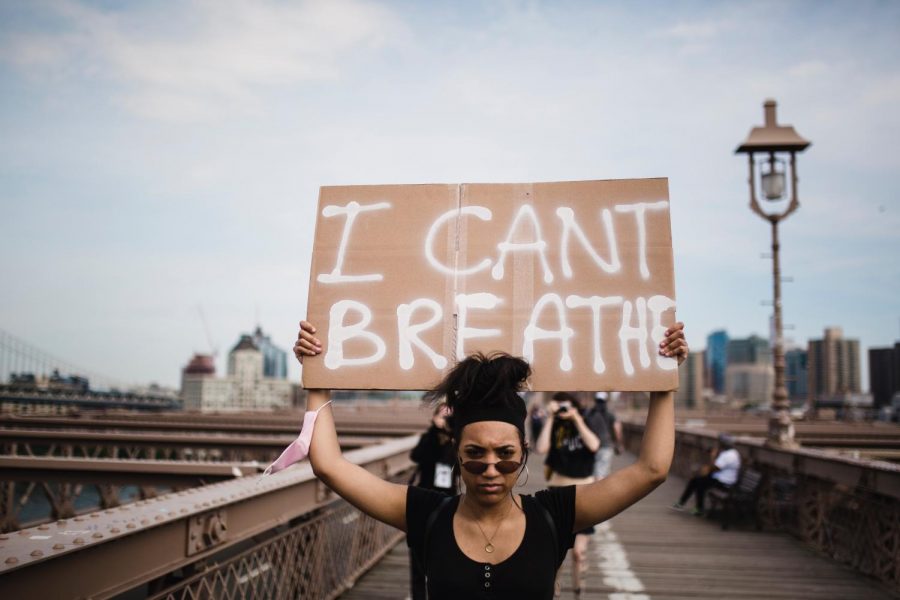A Year Later, Reflecting on the Derek Chauvin Trial
May 25, 2021
On May 25, 2020, millions worldwide watched as Derek Chauvin knelt on George Floyd’s neck for more than eight minutes, emotionless as the man underneath him cried for breath. Floyd died soon after, and the ensuing chaos reshaped the country. Millions took to the streets to demand justice for George Floyd and the countless other innocent and unarmed black men and women who have been killed due to police brutality and a fundamentally corrupt law enforcement system.
Amid this “racial reckoning,” many considered Derek Chauvin to be emblematic of the festering white supremacy at the core of the American justice system, as well as a testament to the fact that police officers were often not penalized for their crimes–as shown by the minimal repercussions that Chauvin initially faced. For many, the fact that Derek Chauvin was the first white police officer to be charged in the death of a black person in Minnesota was enough to urge that Chauvin be prosecuted to the fullest extent of the law. With his official trial commencing in early March 2021 and lasting for over a month, a jury found Derek Chauvin guilty on all counts: unintentional second-degree murder, third-degree murder, and second-degree manslaughter.
Many on social media and beyond were quick to celebrate, proclaiming the verdict to be a significant civil rights win and a significant sign of progress in the nation. However, like junior and head of the Black Student Union, Tyanna Miller, others argued that this decision was not justice at all. Miller remarked, “While I’m glad that Chauvin was found guilty, the fact that I had to hold my breath and that there was even an ounce of doubt that he would be found guilty for a murder recorded and seen by the world, is awful. The actual trial itself was extremely disheartening; the way Chauvin’s lawyer tried to drag George Floyd through the mud was disgusting and hard to watch.” Freshman Sumaiyya Malik echoed Miller, adding, “A man was murdered. He deserved to go to prison. But this is still not [justice]. We need real change.” These mixed reactions were reflected across the internet and beyond. Others pointed out that if George Floyd’s murder had not been recorded, the trial’s outcome would have been very different if there were one at all. Director of Diversity, Equity, and Inclusion and member of the 2020-2021 PDS Community Multicultural Development team Mr. Anthony McKinley wrote, “There was an incredible amount of energy spent in anticipation of the outcome. I’m grateful for the upstander who decided to record, for I truly believe that things would’ve gone a different way without the video evidence.”
As for now, many students are wondering what personal work is left to be done or how to properly cope with and understand the outcome of the George Floyd murder trial. Mr. McKinley recommends that “[students commit] to self-care, being mindful of taking in too many traumatic images, and continuing to educate yourself on systemic racism, police reform, and how to take action in ways that will result in change. This is temporary accountability, but the fight for actual justice continues.” While George Floyd’s case is closed, the fight for racial justice continues to rage.








